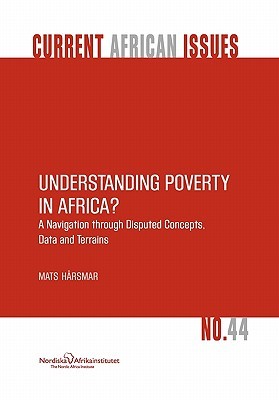
- We will send in 10–14 business days.
- Author: Mats Hrsmar
- Publisher: Nordic Africa Institute
- Year: 2010
- Pages: 58
- ISBN-10: 9171066683
- ISBN-13: 9789171066688
- Format: 17 x 24.4 x 0.3 cm, minkšti viršeliai
- Language: English
- SAVE -10% with code: EXTRA
Reviews
Description
In any international comparison, sub-Saharan Africa is the region with the most pervasive poverty. The study of African societies requires the study of numerous dynamics, processes and situations with links to poverty issues. Recent methodological innovations hold that research into poverty should be multidimensional, dynamic and cross-disciplinary. But how can such research be undertaken? This volume comprises two separate articles. The first provides an overview of major conceptual positions on poverty. With the focus on theoretical and methodological issues, it argues that the epistemological and normative elements have not been sufficiently emphasised in the attempts to bring different disciplinary approaches together. Such elements constitute fundamental dividing lines in the poverty debate. However, the article goes on to argue that the capability approach has promising potential for bridging these divides. The second article is an empirical study of recent poverty developments in Tanzania and Burkina Faso. Common to both countries - one in East and the other in West Africa - is that a largely subsistence agricultural sector dominates their economies. The article combines quantitative and qualitative methods to show that regional differences in the structures of agricultural production may in large part explain variations in poverty.
- Author: Mats Hrsmar
- Publisher: Nordic Africa Institute
- Year: 2010
- Pages: 58
- ISBN-10: 9171066683
- ISBN-13: 9789171066688
- Format: 17 x 24.4 x 0.3 cm, minkšti viršeliai
- Language: English English
In any international comparison, sub-Saharan Africa is the region with the most pervasive poverty. The study of African societies requires the study of numerous dynamics, processes and situations with links to poverty issues. Recent methodological innovations hold that research into poverty should be multidimensional, dynamic and cross-disciplinary. But how can such research be undertaken? This volume comprises two separate articles. The first provides an overview of major conceptual positions on poverty. With the focus on theoretical and methodological issues, it argues that the epistemological and normative elements have not been sufficiently emphasised in the attempts to bring different disciplinary approaches together. Such elements constitute fundamental dividing lines in the poverty debate. However, the article goes on to argue that the capability approach has promising potential for bridging these divides. The second article is an empirical study of recent poverty developments in Tanzania and Burkina Faso. Common to both countries - one in East and the other in West Africa - is that a largely subsistence agricultural sector dominates their economies. The article combines quantitative and qualitative methods to show that regional differences in the structures of agricultural production may in large part explain variations in poverty.


Reviews